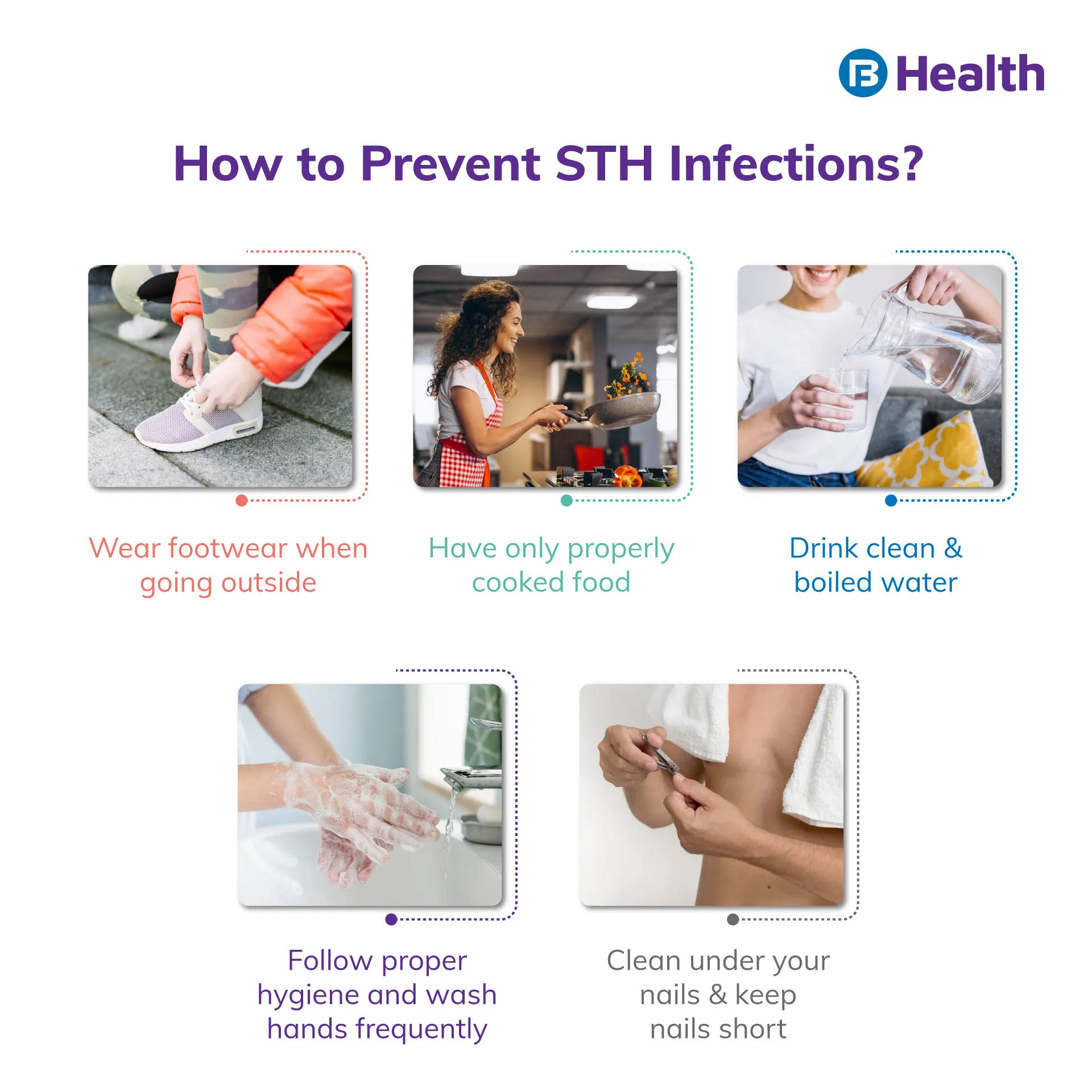General Health | 4 min read
National Deworming Day: What is the Significance of Deworming in Children?
Medically reviewed by
Table of Content
Key Takeaways
- National Deworming Day was launched in the year 2015 by the GoI
- Soil-transmitted helminths are worms that cause infections in kids
- It is important to take your children for regular health check-ups
The Government observes National Deworming Day on February 15 every year. This day helps create awareness on worm infections. It is a way to eradicate intestinal worms that affect children between the age 1 and 9 years. Deworming Day is a flagship program launched in 2015 by the Ministry of Health and Family Welfare. Its main aim is to end the incidence of parasitic worm infections in school and preschool kids.
The government has been successful in launching this program through anganwadis and schools. This helps every child in India become worm-free and stay safe from infections. The most common parasitic worms that affects kids are soil-transmitted helminths or STH. Reports reveal that due to this worm infection, the majority of kids in India are anemic [1]. Read on to know more about this infection and learn how STH affects children.
What are Soil-transmitted Helminths?
Helminths are worms that affect the intestines of people. These worms spread through soil contaminated with fecal matter. Once transmitted, they thrive in human intestines for their survival and food, and consume nutrients meant for you. As a result, you may experience problems due to loss of nutrition like stunted growth and blood loss.
Additional Read: Nutrition Concepts of Healthy DietA few common worms that can infect you include round worms, hook worms and whipworms. These worms affect approximately 1,721 million people worldwide, according to reports [2]. STH infections in children can affect their physical fitness and cognitive skills. One main reason for worm infestation is poor hygiene and sanitation. Since these worms spread through contact with infected soil, it is extremely important to maintain proper hygiene.

How are (STH) Soil-transmitted Helminths Transmitted?
Once adult worms lodge in the intestine, they survive by deriving nutrition. These worms produce a huge number of eggs every day. Eggs get eliminated from your body via feces. If you are following unhygienic practices like open defecation, these eggs begin spreading in the soil. As a result, the soil gets contaminated. When you consume raw vegetables that are not washed properly, you may get infected with these worms. This way, the cycle continues. Other ways of contamination may be due to contaminated water sources. Children playing with soil get infected and these worms affect them.
What Happens if Kids are not Dewormed?
When worms reside in a child’s body, they can interfere with the child’s health and development. These worms can cause malnourishment and anemia. Malnourishment has detrimental effects on children’s physical and mental nourishment. It also hinders the weight and growth of children. So, it is essential to deworm children regularly. By doing so, you can ensure that your child grows in a healthy manner. Your kid’s immunity levels also develop better, increasing their resistance to infections. Regular deworming makes children more active and sharpens their cognitive skills.
Additional Read: Nutrition for Immunity
How can you Prevent the Spread of STH Infections?
To prevent the spread of STH infections, ensure that you follow safe hygienic practices. Always drink boiled and clean water and make sure to wash vegetables and fruits thoroughly before eating them. Encourage your children to wear shoes while going out to play and discourage them from playing in soil with their bare hands.
Ensure that your children never defecate in open areas and insist that they use washrooms. It is also important to wash your and your child’s hands before eating and after using the toilet. Always make sure to cut your children’s nails and keep them clean to prevent the spread of infections.
What is the Treatment given to Children for STH Infection?
Doctors often prescribe a drug called Albendazole, which is a safe treatment option for eliminating intestinal worms in children. The recommended dosage prescribed for children between ages 2 and 19 years is a single tablet of 400 mg. If your children are between 1 and 2 years, you can give them half a tablet of 200 mg [3]. For small children, you may crush this drug and mix it in water.
Can you take a Deworming Tablet on an Empty Stomach?
It is absolutely fine to have this tablet on an empty stomach. But if your child is not feeling well, it is better to avoid this deworming treatment. Once your child recovers, you may give the deworming tablet.
Routine health check-ups are necessary for children to rule out the possibility of any infection. Deworming Day campaigns have been successful in creating awareness about this They also helped in spreading information about good hygiene to reduce the spread of infections. If your child is suffering from this or other health ailments, you can talk to reputed pediatricians on Bajaj Finserv Health. Book an online doctor consultation and address your child’s health from the comfort of your home.
References
- https://www.nhp.gov.in/national-deworming-day-2021_pg
- https://pharmaceutical-journal.com/article/ld/helminth-infections-diagnosis-and-treatment
- https://nhm.gov.in/images/pdf/NDD/FAQ/FAQ_for_NDD-FrontlineWorkers_Eng.pdf
Disclaimer
Please note that this article is solely meant for informational purposes and Bajaj Finserv Health Limited (“BFHL”) does not shoulder any responsibility of the views/advice/information expressed/given by the writer/reviewer/originator. This article should not be considered as a substitute for any medical advice, diagnosis or treatment. Always consult with your trusted physician/qualified healthcare professional to evaluate your medical condition. The above article has been reviewed by a qualified doctor and BFHL is not responsible for any damages for any information or services provided by any third party.




